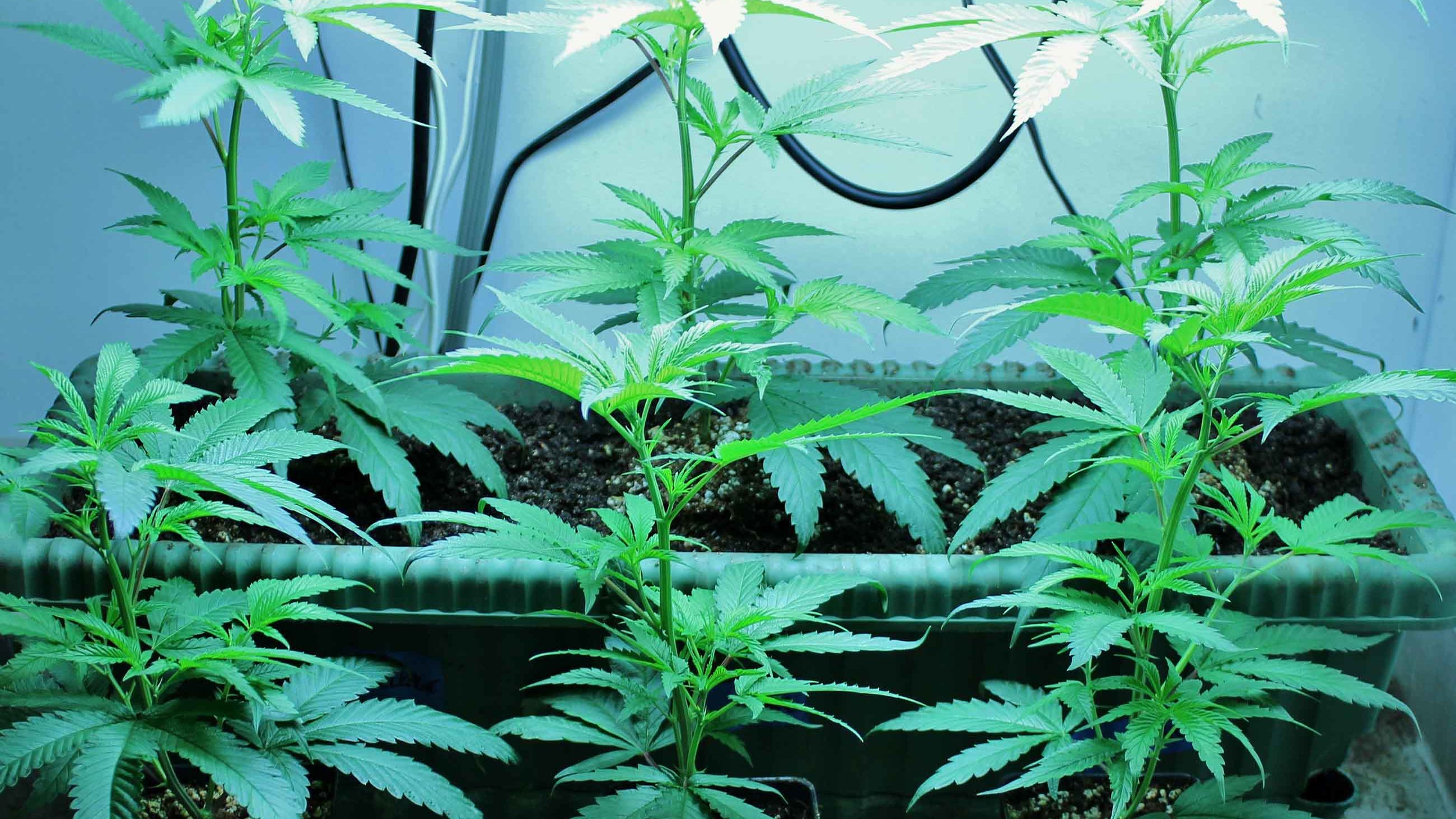We Need to Study Weed
“Guess what?” my patient asked as I walked into the exam room. She stood to greet me, a successful businesswoman in her 60s with a ready smile in spite of her disabling arthritis.
“Tell me,” I said.
“‘WD-40,’” she replied. “I slept through the night for the first time in years.” She explained that she’d been to a marijuana dispensary in Colorado and asked if they had anything for arthritis. “He told me, ‘WD-40 in an edible’” — not the lubricant spray, of course, but a cannabis strain named after it.

Many of my colleagues have had similar conversations with their patients at a multidisciplinary chronic-pain clinic at the University of New Mexico Health Sciences Center. In 2007, the New Mexico Legislature passed a “compassionate use act,” allowing patients with any of 20 medical conditions, from ALS (Lou Gehrig’s disease) to chronic pain, multiple sclerosis, and PTSD, to apply to the state health department for a cannabis card, renewable yearly.
New Mexico is one of 28 states, along with the District of Columbia, that allow cannabis for a variety of medical conditions, but there’s a catch that even WD-40 can’t lubricate: Thanks to federal regulations that classify marijuana as a dangerous drug, it’s next to impossible to do the clinical studies that would tell us what conditions it might be good for — which strains might be beneficial for which patients, and in what doses.
In August, the U.S. Drug Enforcement Administration refused again to consider removing cannabis from its Schedule I list of drugs, which include heroin and hallucinogens like LSD. Advocates for looser restrictions had proposed moving it to Schedule II (with opiates like oxycodone and fentanyl), but cannabis researchers and knowledgeable practitioners argue it doesn’t belong there either.
There has never been a reported fatal overdose from cannabis. The lifetime risk of developing dependence is about 9 percent, far less than for nicotine or alcohol, substances that cause more disability and death than all the opiates combined — although they’re not listed in any of the DEA categories. The side effects from smoking or ingesting cannabis are minimal compared with opiates and most other medications.
And according to a 2015 report by the National Bureau of Economic Research, states that allow medical cannabis have lower rates of opioid addiction and abuse than non-cannabis states. A 2014 study in the Journal of the American Medical Association found that the average overdose mortality was 25 percent lower in states with medical cannabis laws than in states without.
Another patient of mine brings delicious blueberry muffins for the staff on his appointment days. Six years ago, he fell off a 40-foot bridge and suffered fractures of his legs and spine. He’d tried all the recognized, TV-hyped medications available for his neuropathic pain, but cannabis has worked better than all of them, and without the myriad side effects. He told me last month that if it weren’t for cannabis, he’d kill himself.
One day, a 70-year-old woman with neuropathic leg pain waltzed me around the exam room because she felt so much better. In a review article published in June 2016 in The Journal of Pain, the authors refer to “at least five high-quality, randomized controlled clinical trials establishing analgesic efficacy of smoked cannabis” in neuropathic pain.
But my patients’ accounts are just so many nonscientific stories I can tell. We need to be studying cannabis, its burgeoning number of cultivated strains, and their effects on a variety of medical conditions. We need to examine public health and policy implications. In short, we need to be doing research — but because of DEA restrictions, it’s almost impossible to do in this country. With a few exceptions, most of the well-controlled studies are being done in Britain, Scandinavia, and Israel.
Why? (That’s what scientists are supposed to ask.) Best I can tell, the simple answer is the lingering, hostile, behind-the-scenes combat in our hypocritical War on Drugs — trench warfare entering its 46th year.
The New Mexico Department of Health and the University of New Mexico School of Medicine, have a long history of collaborative research. But when it came to suggesting a cooperative study, a qualitative assessment, a simple questionnaire evaluating our patients’ experience with cannabis as a medication, our inquiry was blocked, with no explanation. We can only assume politics got in the way of sound public health policy.
Not so in California, where $2 million from the state tax on cannabis goes to the Center for Medicinal Cannabis Research at the University of California, San Diego, whose mission “is to coordinate rigorous scientific studies to assess the safety and efficacy of cannabis and cannabis compounds for treating medical conditions.”
Here’s an example of some simple research that we could be doing if not for political interference in our patients’ health: About 33,000 patients in New Mexico have cannabis cards. The state health department knows their diagnoses, their demographic information, and whether and for how many years their cards have been renewed — a wealth of information that could be analyzed without violating health care privacy laws and patient confidentiality. We would have even more data if, as part of their yearly renewal process, patients filled out a questionnaire asking about the strains of cannabis they’ve used and their effects, side effects, and comparisons to other medications they’ve used.
Turns out, people who work in what I like to call cannabis apothecaries know much more about what my patients are getting than I do. These include Tom Wilkie, who got a degree in marine biology and experience as a government field biologist before becoming the manager of two medical cannabis dispensaries in Albuquerque.
“I consider myself a scientist,” Wilkie told me, “and that’s a good part of the reason I’m in this business. I also know the science is inexact — and I’d like to help study it, refine it.”
He went on to explain that the New Mexico Department of Health required dispensaries to submit regular business reports, but not much else. “We could be helping with surveys,” he said. “There would be better information for everybody.”
I’ll second that. My medical colleagues and our patients would agree that better information should be a nonpartisan issue.
Benson Daitz, M.D., is a professor at the University of New Mexico School of Medicine, a documentary filmmaker, and a novelist. He has written for The New York Times, The Atlantic, and Undark.











Comments are automatically closed one year after article publication. Archived comments are below.
Hi Ben,
Great to read this. As you know, I am living in Portugal now, a country with a very liberal approach to all (hard) drug use. Taking use out of the criminal sphere and focusing on helping addicts to survive whatever they are addicted to, they aim at getting importers and dealers into jail while leaving users alone, yet with support chains within easy
reach. Cannabis and similar low key drugs are not under attack, their users are not treated as outcasts. As a result, it feels as if there is no drug crisis at all, and certainly no reason for an anti-drugs war under command of a drugs czar leading an army of heavily-armed Bud Lite addicts. Anyway, keep writing your good stuff.
Ton Haak, Tomar, Portugal
Interesting article, traditionally and Mexico burden People have used cannabis for various ailments, mainly chronic pain. It is regrettable that there are no facilities facilities for controlled studies that allow us to know clearly, usefulness, dosage and adverse effects of this valuable therapeutic resource.
Congratulations Ben carry relevant essay and wish be useful for other researchers are interested in this important therapeutic resource